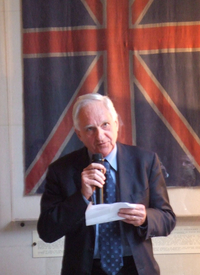SB Alliance: Towards an International QE evaluation network

At the present time, evaluation systems may differ from one country to the other. These systems can generate confusion for professionals involved in the construction industry due to the lack of any common basic principles and comparable quotation methods.
With this initiative, CSTB and the BRE are demonstrating their conviction that the French HQE® certification, the British BREEAM certification and other evaluation methods that are gradually being set up must converge, making use of the same basic principles and common indicators. These evaluation systems must deal with different scales such as buildings and districts, towns and regions. The objective is not to create a single worldwide system, but rather to make certifications evolve towards a broader approach to buildings and sustainable towns across Europe and internationally. Because this is what the market expects and what real estate promoters, designers and architects are waiting for. This partnership is inscribed in a movement that is already ongoing with other organizations (FCAV in Brazil, Qualitel in France, etc.).
This international network will be composed of evaluation and research organizations and parties interested in the sustainable development of buildings and regions. Its purpose will be to evaluate sustainable buildings and regions, to exchange and harmonise practices and to develop new reference documents based on common principles including a multi-criteria, scientifically-based system, built up with the participation of the parties concerned, and respecting local features.
On the next day, four working groups (denoted by a steering committee composed of representatives of Brazil, France and the United Kingdom, and also German representatives as observers) will work together to consider themes that will form the basis for this alliance: their objectives, the role and structure of the organization, conditions for membership, participation and communication, budgets and financing, and technical contents of protocols and generic systems.
Extracts from Alain Maugard’s speech at the British Embassy on April 22

[…] "All countries that have approved the Kyoto Protocol and others have made commitments to take steps to reduce global warming by introducing a new generation of ecologically high-performance, comfortable and functional buildings. These measures have generated and will continue to generate a high demand in the future for environmental evaluations made by independent third party organizations.
However, the intensification of exchanges between countries through flows of goods, services, capital and labour tends to change the landscape of international trade: transnational companies and markets are developing and creating a new type of demand for sound and reliable “international” evaluation systems capable of providing complete information about the impact of construction materials, buildings and more generally the framework built up on the environment. This takes account of the large variety of physical and climatic conditions, construction practices and ecological priorities facing countries and the different regions of each country.
Therefore in the future it will be essential to combine our efforts internationally so as to reach an agreement through which, as nations acting collectively, we can match this new demand. In brief, to create an international platform to share a common language and different know-how, to encourage transparency and the development of methods, tools ands strategies agreed upon by everyone, opening up the way to cross certification. The global model suggested by SB Alliance is innovative and strong because it is based on a wide range of national scientific and technical experience and know-how, taking account of a variety of local conditions. Consequently, it can be adapted to all other countries in the world, taking account of the specific nature of each. […]
[…] Our ambition is to be the first to create a common frame of reference, respecting national and regional differences, to facilitate the comparison between different systems and contribute to the improvement and harmonization of the description and evaluation of environmental performances of buildings and regions. The model for this organisation is inspired from alliances formed between different airlines. In this case, it will be an international network of assessment and research organisations, and stakeholders in the sustainable development of buildings and regions; an international alliance interested in the assessment offering the same approach, based on tools specific to each region, that will have been defined by adaptation of a framework and a common methodology. […]
The Board of Directors
The Board of Directors is the executive authority in the Alliance. Members produce strategic orientations, carry out network management and defend the mark and charter.
• Alain Maugard, CSTB Chairman.
• Martin Wyatt, President of the Building Research Establishment
• José Joaquim do amaral Ferreira, professor at the university of Sao-Paulo, assessor for the British Standards Institution and quality specialist for the Japan Union of scientists and engineering.
• Eva Schmincke, founder of the Büro für Ökologische Studien in Tübingen, a recognized expert in the field of environmental evaluation and the life cycle.
Italy has joined the Board of Directors and is represented by the CNR, the equivalent of the French CRNS. Italo Meroni of the ITC-CNR will defend transalpine interests within the Alliance.
In Finland, the VTT and Eva Häkkä-Rönnholm (R&D vice-president) will represent the country at the Board.
